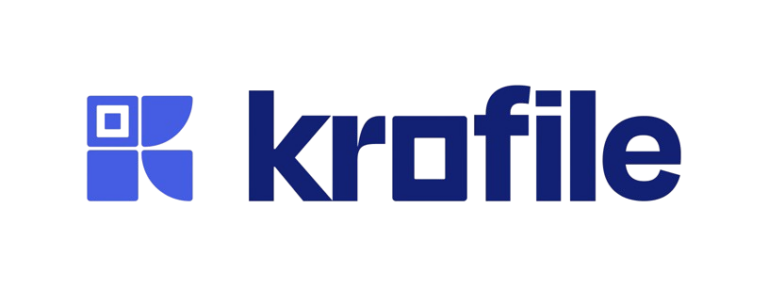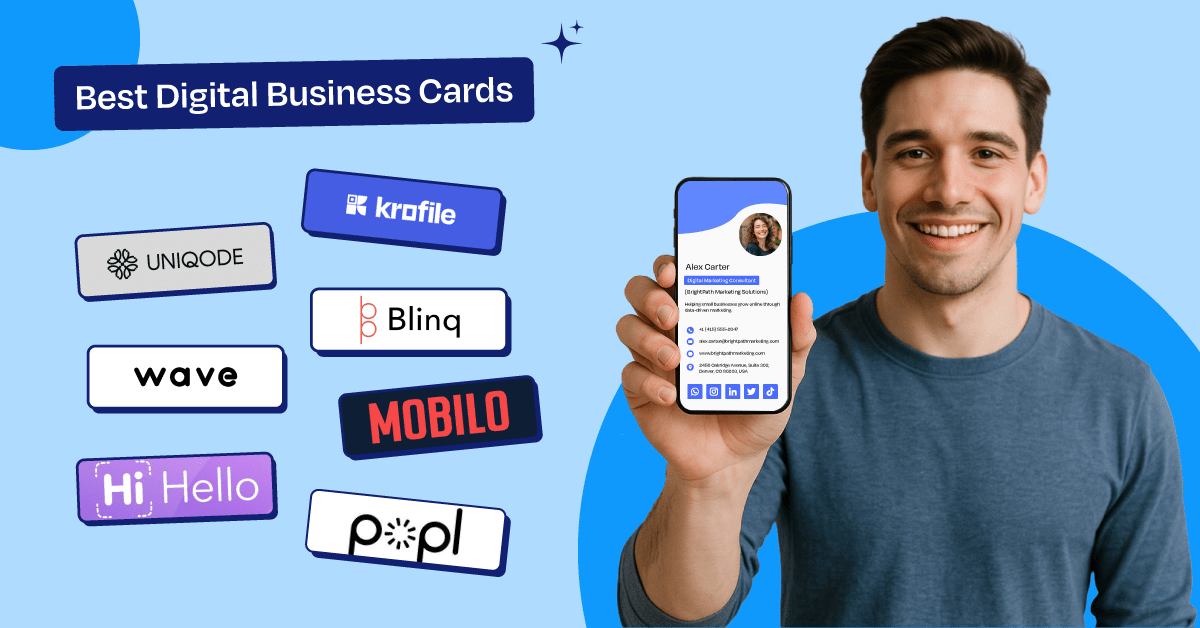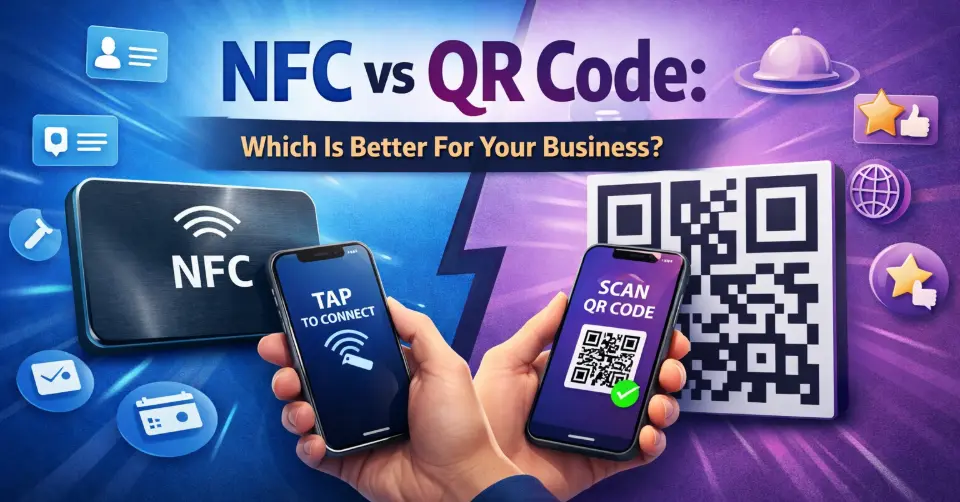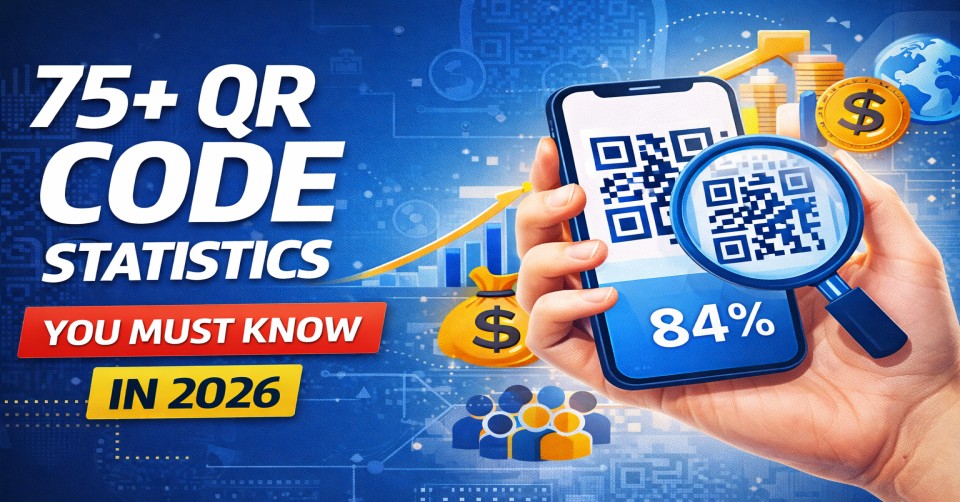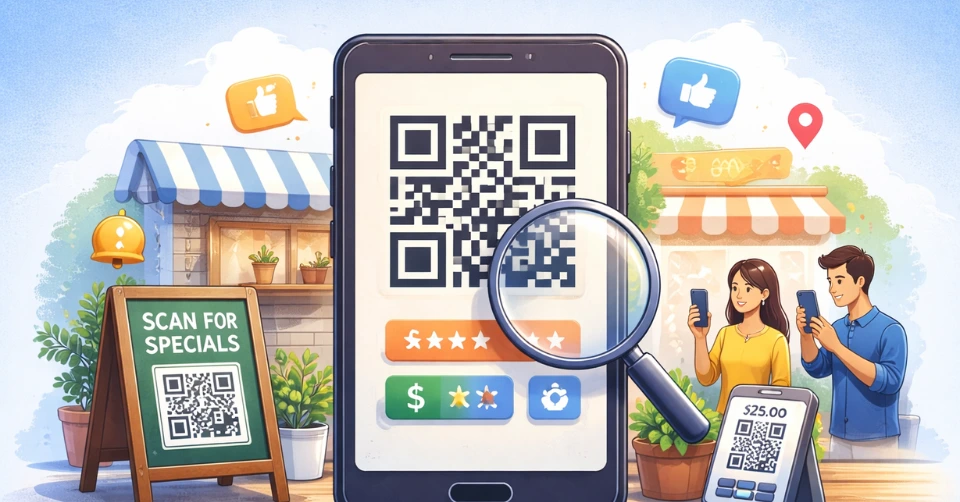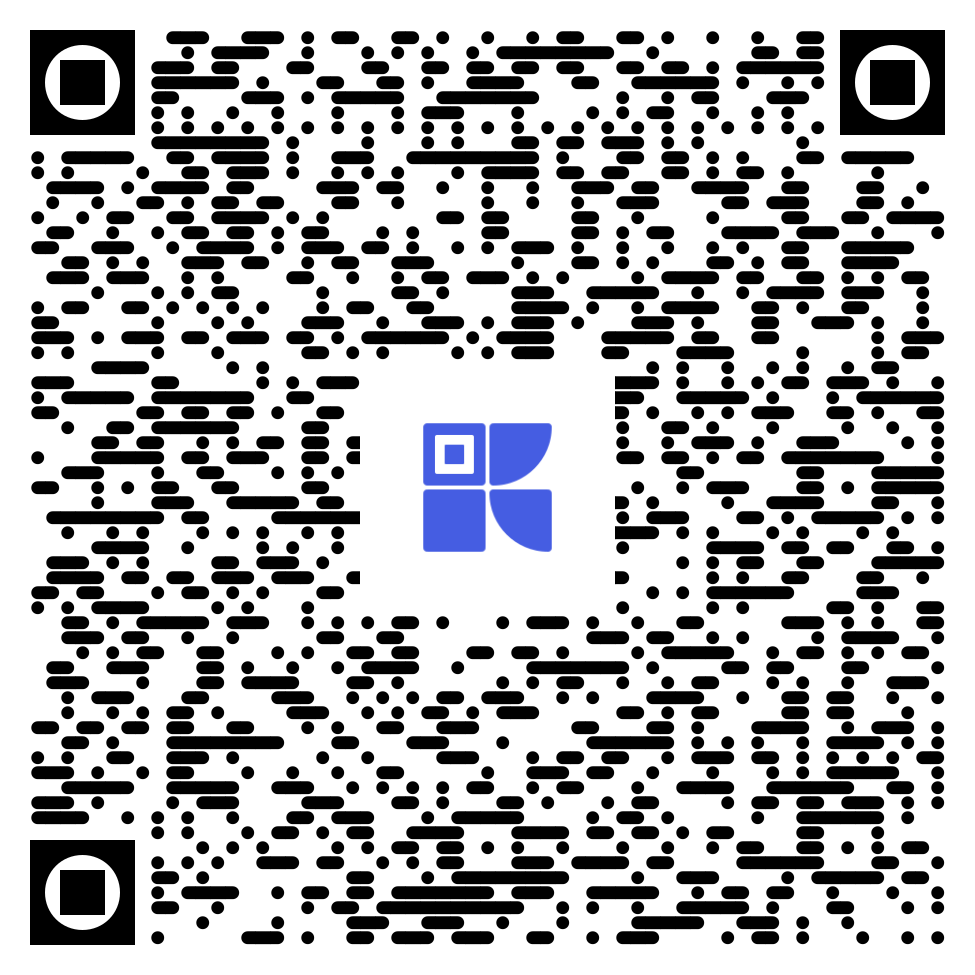Ever feel like you’re stuck handing out stacks of paper business cards, wondering if any of them actually land on someone’s contact list? I’ve been there. Here’s a reality check: users with digital business cards are 16% more likely to convert leads than those with paper cards.
In today’s U.S. business scene, whether you’re a realtor in Texas or a salon owner in New York, your networking tool should match your fast-moving hustle. That’s why I’m excited to dive into the nine best digital business cards for businesses, tools built for instant contact sharing, high-impact review generation, and a serious local-SEO boost.
Let’s find the platform that turns your next handshake into a connection you’ll actually remember.
Overview of Best Digital Business Cards
| Tool | Best for | Key Sharing Methods | Starting Price | Key Features | Differentiator |
| Krofile | Small businesses & local service pros | QR code, NFC tap, link-in-bio | $9.59/yr, Free plan available | Fully customizable cards, Local SEO optimized, Analytics | Tailored for SMBs + review boost |
| HiHello | Pros, teams, and enterprises | QR code, link, Apple Wallet, Apple Watch, NFC | $6/mo | Unlimited links, multiple cards, team templates, branding | Strong customization and enterprise support |
| Popl | Sales teams and event professionals | NFC card tap, QR code, link | $6.49/mo | NFC tap sharing, lead capture mode, physical & digital hybrid | Popular NFC-first solution, higher cost for hardware |
| Blinq | Freelancers, pros | QR code, link, NFC card option, Apple Watch | $7.33/mo | Easy setup, Apple Wallet, team dashboard, QR/Wallet support | Minimalist & fast setup, may lack enterprise depth |
| Wave | Teams | QR code, NFC tap, Apple/Google Wallet, link | $7/mo | Unlimited sharing, lead capture form, analytics, CRM integration | Strong free tier, good value for small teams |
9 Best Digital Business Cards That Can Boost Your Business
1. Krofile

Best for:
SMBs, local service professionals
Krofile Overview:
I’ve seen countless small-business owners hand out paper cards at networking events—only to wonder later if any contact ever stuck. That’s where Krofile steps in. Imagine instead handing out a QR or tapping an NFC tag, and the client instantly saves your contact, sees your services, and can tap to leave a review, all from their phone.
Krofile isn’t just a digital business card; it’s like a mini-website, review engine and contact hub rolled into one. For U.S. small businesses that rely on local reputation, think realtors, salons or contractors, it’s the tool that turns a handshake into a lasting connection. What sets it apart: built-in review generation and local-SEO optimization, features most other cards barely touch.
Key Features:
- QR code & NFC tap sharing
- Mobile-ready profile (save to phone)
- Review links (Google, Yelp)
- Mini-website style card (services, hours, gallery)
- Link-in-bio hub (all your links in one place)
- Contact-save & “add to home screen” option
- Analytics dashboard (views, clicks)
- Local-SEO support for U.S. service-businesses
Pros:
- Very strong fit for small businesses & local-service pros who need reviews.
- Easy and fast setup; sharing is simple (scan or tap).
- Works as both a digital business card and a review-generation tool.
- Good value, especially for U.S. SMBs rather than enterprise only.
- Helps turn a handshake into a contact + review opportunity.
- Built-in analytics dashboard shows views, clicks and review conversions—so you can see what’s working.
Cons:
- Since it’s packed with features (cards + reviews + SEO) the learning curve might be slightly higher than ultra-basic cards.
- Compared to large enterprise-focused platforms, there might be fewer advanced integrations or large-team features.
Pricing:
- Free plan: Includes one digital business card and core features.
- Premium: $9.59/month — up to 2 digital business cards, ability to run promotions & giveaways, custom email integration, analytics.
- Business: From $35.99/month — up to 5 cards.
- Enterprise: Custom pricing — scalable for large teams or agencies.
2. HiHello

Best for:
Professionals, teams and enterprise
Overview:
HiHello stands out when you need more than a simple digital business card — I’m talking full professional presence. With HiHello you can send your card via QR code, link, text, email, Apple Wallet or Apple Watch.
It’s built for people who network hard and want their brand to look sharp across devices. What sets HiHello apart is its seamless integration with email signatures, virtual backgrounds, and CRM systems — so you not only share contact info but turn that exchange into real business value.
Key Features:
- Multiple card templates and unlimited links per card.
- QR code, link sharing, Apple Wallet, app-free access.
- Email signature generator and virtual background built around your card.
- Brand customization: colors, fonts, logos, custom URLs.
- Contact management and enrichment, including CRM sync (Salesforce, HubSpot).
- Analytics and team dashboard (shares, views, performance).
Pros:
- Excellent sharing flexibility and device compatibility.
- Strong branding and customization capabilities.
- Great for teams with admin controls and analytics.
Cons:
- More expensive than simpler digital card tools.
- Many advanced features are locked behind higher tiers or team plans.
Pricing:
HiHello offers a Free plan, a Professional plan at $8/month, and a Business plan at $6 per user/month for teams of 5–100 users. For larger organizations, HiHello provides a custom Enterprise plan with advanced security and full company-wide management.
3. V1CE

Best for:
Premium networking experience
Overview:
I’ve tested the V1CE card firsthand and let me tell you—it’s slick. One tap or scan and you’re sharing your full profile—no messy apps required. It’s designed for professionals who want that “wow” factor when networking. What differentiates V1CE is its physical-NFC card plus a rich digital profile with analytics and CRM sync.
If you compare it to a tool like Krofile, V1CE excels on premium hardware and design—but lacks the built-in review-generation features that Krofile offers for local businesses.
Key Features:
- One-tap NFC sharing + QR fallback (no app needed)
- CRM integration and automated lead capture
- Custom domain and branding for your card profile
- Analytics dashboard: views, clicks, saves
- Team management + unlimited cards on certain plans
Pros:
- High-quality physical card habitually impresses in person
- NFC + QR ensures compatibility across devices
- Rich analytics and workflow automation help follow up
- Strong for professionals and teams needing brand consistency
Cons:
- The premium pricing and physical card focus make it less budget-friendly for smaller local businesses
- Does not include the specific review-generation tools built into Krofile
Pricing:
V1CE offers a Free plan with one digital card and basic analytics. For full features and unlimited cards, you’ll need to contact sales for the Plus/Unlimited plans.
4. Blinq

Best for:
Large teams and enterprises
Overview:
I’ve used Blinq on the go, and here’s what stood out: in just a couple of minutes I created a clean digital business card, customized colors, added links, and shared it by QR, link, or NFC with zero fuss.
What makes Blinq shine, especially compared to tools like Krofile is its ultra-fast setup and wide sharing methods across devices; on the flip side, it lacks Krofile’s built-in review-generation + local-SEO focus that service pros really crave.
If you’re someone who meets lots of people quickly (trade shows, mixers, conferences) and wants to look sharp without heavy setup, Blinq is a very smart pick.
Key Features:
- QR code, NFC card, link sharing, Apple/Google Wallet support.
- Unlimited sharing and multiple cards with the free plan (no watermark).
- Custom branding: colors, fonts, logos, multiple templates.
- Team dashboard + CRM integrations (HubSpot, Salesforce).
- Email signature generator
Pros:
- Creates professional cards in minutes with minimal effort.
- Strong sharing versatility (QR, link, wallet, NFC) for varied networks.
- Excellent free plan options with no forced branding for many users.
- Good team-features and CRM connectivity for growth-minded professionals.
Cons:
- Doesn’t include the specialized review-generation/local-SEO tools that Krofile offers.
- While branding customization is solid, deeper SMB local business features (hours, location, review link funnels) are less prominent.
- Some advanced features (team templates, hardware cards) cost extra—so the pricing can creep up.
Pricing:
Blinq offers a Free plan, a Premium plan at $9.99/month for individual professionals, and a Business plan at $6.99/month per card (minimum 5 cards) for teams.
5. Popl

Best for:
Large corporations and agencies
Overview:
When I tested Popl, the moment I tapped the card and the full profile popped up on my phone, no app needed, I knew this was next-gen networking. Popl is built around one major idea: turn every handshake or conference interaction into a lead.
It isn’t just a digital business card, it’s a lead-capture engine with NFC, QR, share links and deep CRM integrations. And because I’ve used both Popl and Blinq, I’ll say this: Blinq wins speed and simplicity; Popl beats it when you want full event-ready power and team-wide control.
Key Features:
- NFC tap & QR code sharing for instant contact exchange.
- Direct syncing with CRMs like HubSpot, Salesforce and 5,000+ other apps.
- Lead capture & enrichment: capture the contact, enrich missing data and push to your system.
- Team-management dashboard for branding, templates, sub-teams and permissions.
- Works offline and still captures leads for later sync — great when you’re in remote areas.
Pros:
- Makes your handshake instantly trackable — a full profile instead of a paper card.
- Excellent for teams and events, with branding and workflow control.
- Robust CRM integrations mean your lead doesn’t fall into the spreadsheet black hole.
- Everyone can receive your card — no app download required for the recipient.
Cons:
- The full power comes at higher cost, which might feel heavy for a solo local business.
- Because the focus is on leads and events, some simpler local-business-specific features (like built-in review funnels or local-SEO help) are less emphasized.
- The amount of settings/team features can feel complex if all you need is “one card and share it.”
Pricing:
Popl offers a Free plan at $0/month which allows users basic digital business card sharing capabilities. For more advanced features, their Pro plan starts at approximately $6.49/month, and the full-featured Pro+ plan is about $11.99/month.
6. Dot Card

Best for:
Professionals and Teams
Overview:
I tried Dot Card recently, and the experience was refreshingly simple: you tap your card to someone’s phone (or they scan your QR) and—boom—your full contact profile appears. No apps to install, no awkward fumbling. It feels like the business card of the future in your wallet today.
Designers and professionals who want a sleek first impression will appreciate how Dot Card handles sharing.
At the same time, if you’re a local service business focused on driving reviews and SEO, you might find that some of the built-in features offered by platforms like Krofile are missing here.
Key Features:
- NFC tap sharing + QR code fallback
- Fully updateable digital profile (links, socials, portfolio)
- Premium card materials (metal/plastic) and sleek design look
- Analytics dashboard (views, taps, link clicks)
- Works across iPhone & Android without needing a specific app
Pros:
- Makes a strong visual impression — excellent when meeting clients face-to-face
- Instant contact sharing with zero friction
- The “set-once and update anytime” model beats printing paper over and over
- Good analytics for tracking how many people view your profile
Cons:
- Premium card materials and look come at higher cost than simpler card tools
- Fewer features focused specifically on local business tools like review collection or local-SEO support
- Versatility for teams or heavy multi-card setups is less than enterprise-focused platforms
Pricing:
Dot Card offers a Free plan for basic digital profile creation at no cost. For advanced features, the Plus plan is $15/month, unlocking extras like enhanced profile themes, advanced contact management, and export capabilities.
7. Mobilo

Best for:
Teams and Agencies
Overview:
When I rolled out Mobilo for our networking events, I noticed a big difference: instead of handing someone a paper card and hoping they remember me, I could just tap my card and instantly capture their info.
With Mobilo you’re not just trading contact details—you’re turning the moment into a trackable lead. I’ve tested both individual-focused tools and full team platforms (like Blinq), and I’ll say this: Mobilo is especially strong when your business needs a unified brand, lead-funnel tracking, and team-wide card management.
Key Features:
- NFC tap + QR code sharing to nearly any phone.
- Branded landing page/profile with links to socials, website, demo, etc.
- Lead capture mode and CRM integration (3,000+ apps, including Salesforce, HubSpot)
- Team dashboard for admins: manage users, cards, analytics at scale.
- Real-time updates to card/profile—no reprinting when details change.
Pros:
- Converts networking moments into actionable leads with analytics.
- Works across devices without forcing the recipient to install an app.
- Excellent for teams and companies needing brand consistency.
- Strong hardware options (card materials) + digital capabilities.
Cons:
- More features mean a steeper learning-curve for solo entrepreneurs.
- Premium hardware/card materials can inflate cost for simple use cases.
- Some user feedback highlights app performance issues when customizing profiles.
Pricing:
Mobilo offers a Pro NFC card and digital profile starting around $9.50 for their branded plastic card tier, with custom design options like wood and metal starting from $29-$69 one-time. For team or enterprise use, they charge $4/month per user (after initial purchase), on top of the custom hardware costs.
8. Wave Connect

Best for:
Teams
Overview:
When I switched over from paper cards to Wave Connect, one thing stood out: I could share a full digital profile instantly—no printing, no bulk cards. For solo professionals or small U.S. business teams, it’s a strong choice because you get unlimited sharing and an easy setup.
Meanwhile platforms like Krofile focus heavily on review collection and local-SEO, Wave Connect gives you great value with broad sharing, simple profile updates, and affordable pricing.
If you have a physical location for which you want to boost its local visibility, Krofile can be a more sensible choice, else Wave does the job.
Key Features:
- Unlimited sharing via QR code, wallet pass, link, or NFC.
- Fully customizable profile: logo, colors, links, and gallery.
- Lead capture mode + CRM integrations (HubSpot, Salesforce) for tracking contacts.
- Works App-free: recipients don’t need to install anything to view/contact you.
- Multi-user management & Team dashboard for scaling across a business.
Pros:
- Extremely easy to share and update—makes networking less of a hassle.
- Great value: the free tier already covers most everyday sharing needs.
- Built-in analytics and lead capture help you follow up better.
- Works across devices (iOS/Android) and doesn’t force app installs.
Cons:
- While simpler tools cover review-generation and local SEO better (e.g., Krofile), Wave is more generic in that area.
- Some advanced team or enterprise features require higher-priced plans.
- Because of its generalist design, customization for hyper-local SMB branding might require extra effort.
Pricing:
Wave Connect offers a Free plan at $0/month which covers core features like unlimited sharing and digital card creation. Their Pro plan starts at about $9/month, and their Teams plan begins around $7/user/month (with a minimum of 3 users).
9. Uniqode

Best for:
Agencies, Large enterprises and Professionals
Overview:
I’ve worked with Uniqode and found it ideal when you want more than just a digital business card—you want deep insights and broad sharing. It’s built for teams that attend trade shows, conduct field sales, or deploy hundreds of cards and need to capture leads, track scans, and update everything in real time.
Unlike simpler tools designed just for sharing, Uniqode leans hard into analytics, CRM integration, and enterprise-style features—so if you truly want to turn every handshake into a measurable opportunity, this is the one.
Key Features:
- Two-way contact sharing + QR, link, Apple/Google Wallet support.
- Lead generation and analytics: track views, clicks, saves, device & location data.
- Bulk card creation & template management for teams.
- Strong security and compliance (GDPR, SOC 2 Type II) for enterprise use.
- Fully customizable brand styling: logo, domain, fonts, layouts.
Pros:
- Excellent for tracking and measuring how many people actually engage with your card.
- Great for large teams or companies that need centralized card control and data.
- Recipients don’t need a special app—sharing is seamless and broad.
- Strong security and enterprise readiness make it suitable for regulated industries.
Cons:
- It may feel overkill (and cost) for a solo local business that simply wants to share contact info.
- Some of the advanced analytics and team features are locked behind higher pricing tiers.
- It lacks the physical card/NFC hardware focus that some platforms offer for face-to-face first impressions.
Pricing:
Uniqode offers a Free plan at $0/month for one user, covering basic features like creating and sharing a digital card. The next tier is the Team plan at $6 per user/month, billed annually, with advanced customization and bulk-card capabilities, while the Business+ plan is available via custom pricing for large enterprises.
How to Choose the Best Digital Business Card
Choosing the right digital business card? Let’s walk through it together.
First things first: Ask yourself, “What am I really trying to do?”
Are you a solo service pro who needs a clean contact-share tool? A local business owner who wants more reviews and bookings? Or part of a team that hands out cards by the dozens at trade shows?
Here are the key checkpoints I always use:
1. Sharing options:
You want your card to be easy to share—QR, link, NFC tap—all of it. If the person you’re networking with needs to download an app just to save your contact, you’ve lost the moment. That’s why I like how Krofile just works out of the box.
2. Rich profile & branding:
Your card should reflect you. Logos, colors, services, reviews—all of it. Tools like Blinq nail the visual polish. But for me, I also want something that drives reviews, not just looks pretty.
3. Review generation & local business fit:
If you’re running a local business (salon, auto-repair, dentist, whatever) you want more than a digital card—you want more clients. So consider whether the card platform helps collect Google/Yelp reviews or show up in “near me” searches.
4. Analytics & follow-up:
You shared your card great. But are people visiting it? Saving it? Acting on it? A good tool tells you. If you’re going to network smart, you need that data.
5. Cost vs value:
Free sounds nice—yes, try a free plan. But if the tool locks out the features you really need behind expensive tiers, you’ll regret it. Make sure the cost matches the features you’ll use.
6. Ease of use and updates:
Paper cards get outdated fast. Change your phone number, service, or logo? The digital card should update instantly, no re-printing. Make sure the platform is simple to edit and share.
So, if you’re looking at options and you keep thinking: “I just want something that works, collects reviews, and doesn’t cost me a fortune”—then Krofile might hit your sweet spot. If instead you’re more focused on slick design and conference swag, Blinq or others might lean into that.
